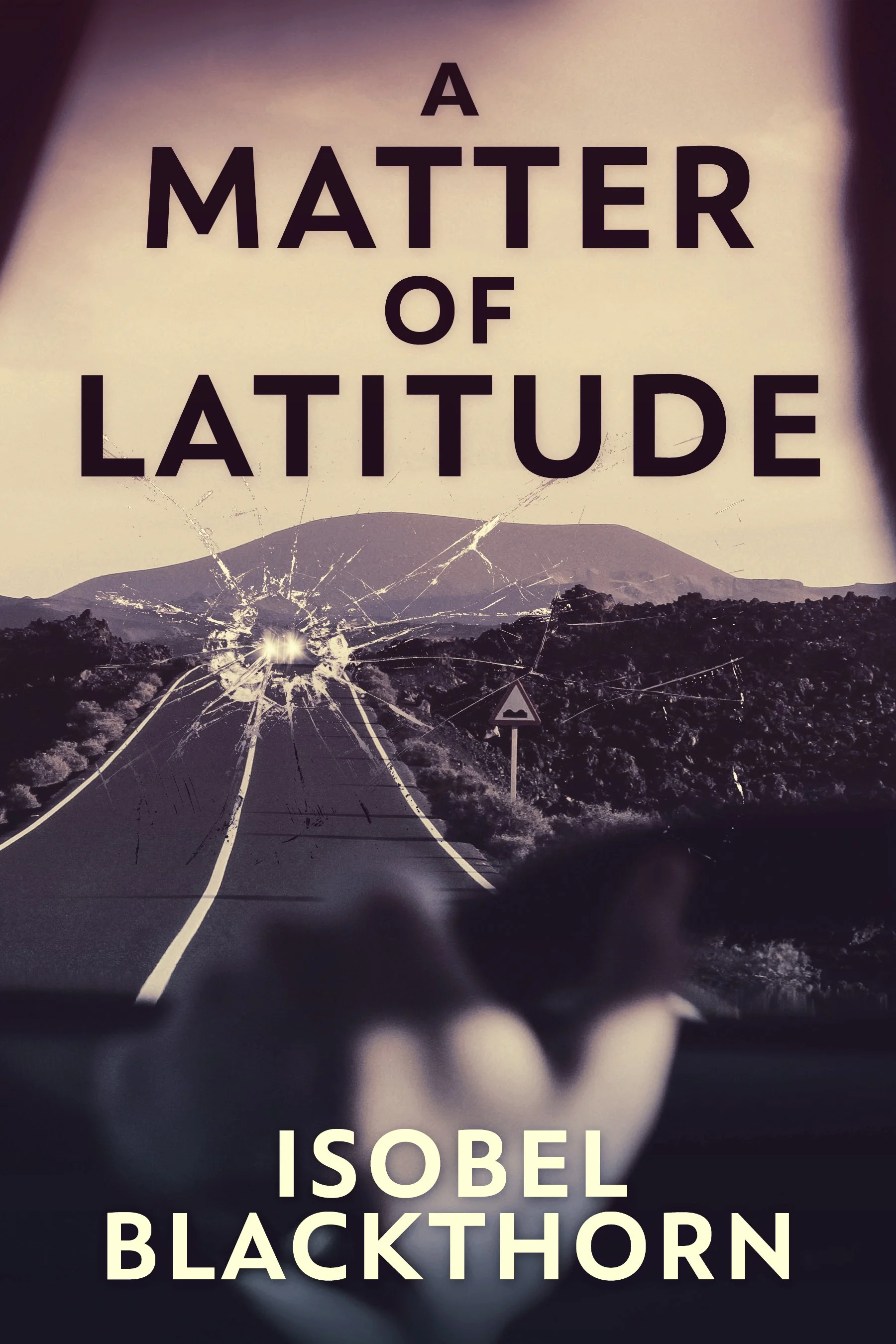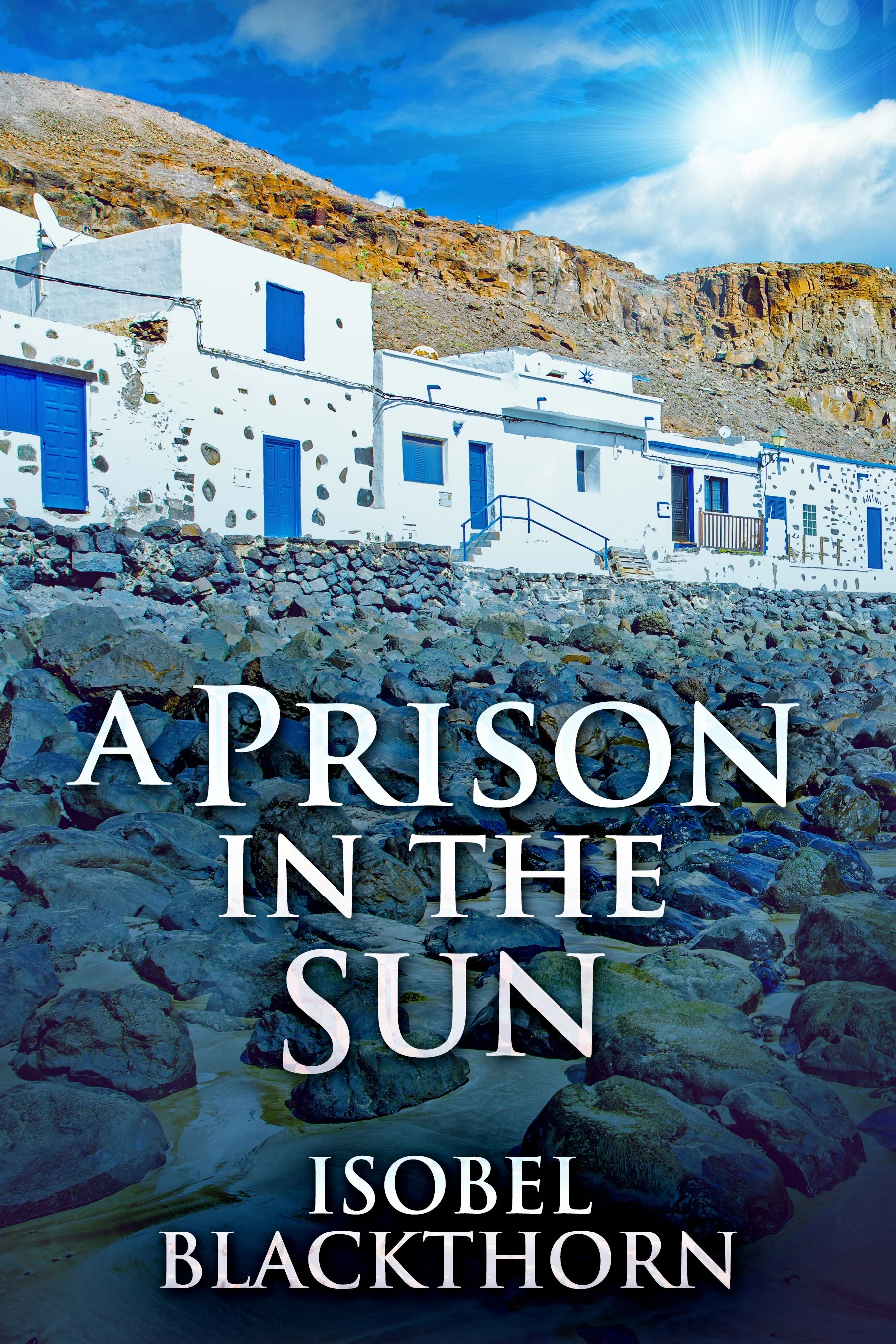Sing Like a Canary (Canary Islands Mysteries Book 5)
Book summary
In "Sing Like a Canary," retired police officer Marjorie Pierce embarks on a quest to confront her former informant, Billy McKenzie, who once cost her career. As she travels to Lanzarote, her past collides with the present when vengeful gangsters, Eric and Mick Maloney, arrive on the island. Marjorie races against time to find Billy and unravel a web of betrayal, testing loyalties and trust. Isobel Blackthorn's fifth installment in the Canary Islands Mysteries Series delivers a multi-layered mystery filled with suspense, suitable for both series fans and newcomers.
Excerpt from Sing Like a Canary (Canary Islands Mysteries Book 5)
I had no idea why I lied about my name. I had never, ever, not once in all of my sixty-seven years given a false name. Why start? A reflex? I realised with sudden force that now could well be the time to lie about who I was. There was a pretence to maintain. Even on this far-flung rock of an island. I had to remind myself of that. I could be too honest.
My eyes had already taken in his signature on the letter. It was unmistakable even after forty years.
Edwin Banks.
Billy Mackenzie had practised that signature over and over in the days leading up to his departure. I’d watched him do it. He wrote in large childlike alphabet letters, the sort you would expect from a kid in Grade One – I hadn’t liked to ask if he was at best semi-literate, I’d just assumed it watching his cack-handed efforts – and for the fun of it he’d come up with a way of making the E much larger than the rather large B and underscoring his new name with a pronounced zigzag trailing under the S.
And there it was, the signature of Edwin Banks plain as day beside the stranger’s fingertips, the letter itself splayed out on the café table, its corners lifting thanks to the sea breeze.
I’d always enjoyed keen eyesight. Ever since I was a child my eyes would home in on little bits of evidence – the shoelace of Carl Fisher’s school shoes in the bushes where Fiona Macintyre was molested, the missing tooth of Wendy Fraser in the gravel edging the school driveway after her skirmish with notorious school bully Sharon Weare – and it was this natural talent that had led me to join the constabulary. You’d make a great detective, my mother had said, which was a progressive thing to tell a daughter in the 1960s. I had a habit of finding myself in the right place at the right time, too, and I had a good nose for sniffing out clues. You’re a natural, Marjorie Pierce. Isn’t that what they’d said, back in the days of my police training. It was 1977 by the time I joined the force at the tender age of twenty-four, and indeed they had. That was what they’d said when they weren’t being lewd.
On that warm afternoon in March, I had gone for a drive down to the island’s southern coast to meet up with an old colleague. He was on holiday here and had managed to get a message through to me when I was back in England that he had some information about Billy. Once I’d arrived on the island, we arranged to meet. But he didn’t show. On my way back to my car, I was passing a café near the ferry port when hunger grabbed a hold. It was lunchtime and the café’s outdoor area was crowded with holidaymakers, and I was forced to head for the only table with a vacant chair. I didn’t want to have to share a table with anyone, but the woman seated with her back to a potted succulent looked harmless enough.
And there the woman sat, her mature and stately visage replete with wavy grey hair framed by the plant’s fleshy leaves as she pored over a letter from Billy Mackenzie née Edwin Banks. He was writing to his son Alvaro. Dear Alvaro. That was all I was able to read. That and the date. 1989. To have continued would have appeared rude and inappropriate. Besides, a waiter came with the woman’s coffee, and I’d had no choice but to accept the proffered menu as I sat down. The woman then tucked away her letter and held out her hand and introduced herself. And I, Marjorie Pierce, had said Edna Banks. Edna, Edwin, it was as though I had temporarily fallen under some sort of hypnotic spell. Either that or I’d had a brain freeze. Why not say my real name? And if I felt I had to lie, why then choose a name almost identical to the fake name of the individual I had come to find? Clumsy. Not one of my sharp-witted moments. Truth is, the woman’s unexpected hospitality had left me momentarily flustered. The curse of ageing.
At least Clarissa had no idea I had seen, let alone recognised that signature. She thought it was pure coincidence that my name was so similar, and her face filled with astonishment.
What were the chances?
‘Banks is a common enough name,’ I said.
Even so, I suspected the similarity was the sole reason Clarissa had shown a good deal of enthusiasm for exchanging contact details. Perhaps she thought I was this Edwin’s sister and was trying to hide it. Still, when Clarissa said she was on her way back to Fuerteventura and she would look me up next time she was on the island, I, Marjorie now née Edna, decided it unlikely I would ever encounter the woman again.
I thought I had hidden my own astonishment well. A different sort of astonishment, founded on the presence of that letter. What were the chances? I kept coming back to that. What was Clarissa doing with that letter anyway? Then I realised Alvaro’s death had been all over the newspapers. And the articles had mentioned an Englishwoman who had managed to escape a heinous ordeal at Villa Winter, thought to be a secret Nazi base on Fuerteventura.
My memory was hazy when it came to that Englishwoman’s name. An inner voice prevented me from simply asking Clarissa if she was that very woman. In her shoes, if it was her, I would not want to be probed. Do as you would be done by. Isn’t that what they say. At any rate, I gave her the privacy she no doubt craved. Which meant I was forced to make chitchat for the duration of my ham sandwich and orange juice, chitchat in which I managed to divulge far too much to cover my inner embarrassment at calling myself Edna Banks. Then there was my eagerness to find out what I could about the Villa Winter case. The combination had thrown me off-kilter. Fortress Marjorie had let down the drawbridge.
Making a bad situation even worse, Clarissa seemed to have a knack for loosening tongues. It had a lot to do with her own divulgences and how she had come to Lanzarote on a day trip to visit a prisoner. How he’d been wrongly convicted of murder. Poor sod, but it happens. In the telling, she’d created common ground. It felt natural letting her know I was a retired copper who back in the day had been instrumental in nailing a notorious London gang. A gang rightly convicted, no mistake there. I’d even told my new acquaintance I had come to the island to settle a score with an expatriate criminal. Sounded like bragging when I thought back on it later. Would Clarissa put the two together, the gang and the man? Even if she did, it wouldn’t matter. There was nothing to link any of what I’d said to Billy Mackenzie.
After some brief observations about the weather – there’d been one mother of a dust storm a couple of days before I arrived – I promised to keep in touch, paid, and left.
There was a newsagent on the next corner. I wended my way past the usual tat and cheap novels on display at the entrance and browsed the newspaper rack inside. I didn’t need to search hard to find what I was looking for. Clarissa Wilkinson’s name and photo were on the front page of a local newssheet. I bought the newssheet and headed back to my car.
The drive to the holiday let was, for the island, a long one. I had the aircon on full blast, and I had to concentrate the whole way, not accustomed to driving on the other side of the road.
The eastern portion of the island was mostly given over to tourist resort towns and the traffic was steady. A stretch of dual carriageway circumnavigated the capital Arrecife and then there was a string of roundabouts heading out through the wealthier suburban enclave of Tahiche. After that, the traffic thinned a little, the main road continuing on to Teguise and the central towns, the turnoff, which I took, coursing along a coastal plain beside steep-sided hills. The lure of the north, with dramatic landscapes further on and several renowned tourist sites, meant there wasn’t that much of a let up in the traffic. Here, the drive was complicated by the cyclists, loads of them, and there wasn’t enough road width for them and us, causing no end of tailbacks and risk-taking by irate drivers. Once I’d turned off onto the old road to my village, the traffic thinned to near zero and I relaxed.
Not being one for the tourist enclaves, I had rented a detached house on the eastern edge of the pretty village of Guatiza, on land backing on to Las Calderetas, a low sprawling volcano sheltering Guatiza from the east coast. There were volcanoes everywhere you looked on this island but the ones in the north were a lot older. The locale was known for its prickly pear farms – cultivated for cochineal traditionally, and also for cactus jam – and there were fields of cactus to either side of the house. I loved the area. The village was neat and tidy, the houses cuboid and white. The cacti – lending a permanent green to a bone-dry landscape – contained by low dry-stone walls. The house I had rented was a new build constructed in the traditional fashion and very well maintained by its German owner who had been more than happy to let me lease the place for three weeks at a reduced rate because there was one of me.
There was another reason I’d picked Guatiza. Billy would have holed up somewhere remote but accessible. Not for him the wilderness, the cliffs, the churning ocean. He had a horror of heights, having once been suspended upside down from the roof of a high-rise housing block. The price you pay for the people you choose to mix with. Which had ruled out all of the Canary Islands bar Fuerteventura and Lanzarote when he was choosing where to run to, where to hide. I had joked with him at the time that La Gomera would be his best pick. Near vertical cliffs and ravines, no beaches to speak of – at least not the sort sporting swathes of white sand – the island rising up out of the ocean like a raised scab. They’d managed to flatten a portion of land near the coast for a runway. The island was favoured by the Germans, there were almost no English there, and the guidebook talked of some interesting cave dwellings. An ideal location to disappear to as no one who knew Billy would ever think he would pick such a place. He was having none of it. I had him rubbing his palms on his trouser legs in the imagining. Hilarious.
Neither of us had heard of any of the islands other than Tenerife before studying the map. He’d vetoed Fuerteventura – even though it looked much flatter than most of the other islands – saying it sounded like a total backwater, which it was in 1980, according to Let’s Go. As for Lanzarote, which became his choice after he’d eliminated all the others, there were not that many places on the island off the beaten track that were not half-buried in a lava flow. The island was barren and exposed – you could be seen for miles practically anywhere – and a foreigner had little choice but to mingle a little. In 1980, lone foreigners outside the tourist areas and the capital would have been known individually by the locals. I did alert him to that, but he didn’t listen.
After studying maps and descriptions of the island when I was planning my trip last week, I had taken a punt that Billy would have headed north, away from the tourism in the south, but still within easy range of shops and banks in the capital Arrecife. Even back when Billy had come here, the pocket of land at the beginning of the island’s northern tip ¬– where the island narrowed to just a few kilometres wide, ending abruptly on the west coast in a dramatic cliff – boasted a small German enclave in the village of Mala and a nudist colony at nearby Charco del Palo. The Germans had established themselves as had the nudists, and both groups would have suited Billy as neither would have taken the slightest bit of interest in a scrawny, bearded weasel of a Brit.

















Praesent id libero id metus varius consectetur ac eget diam. Nulla felis nunc, consequat laoreet lacus id.